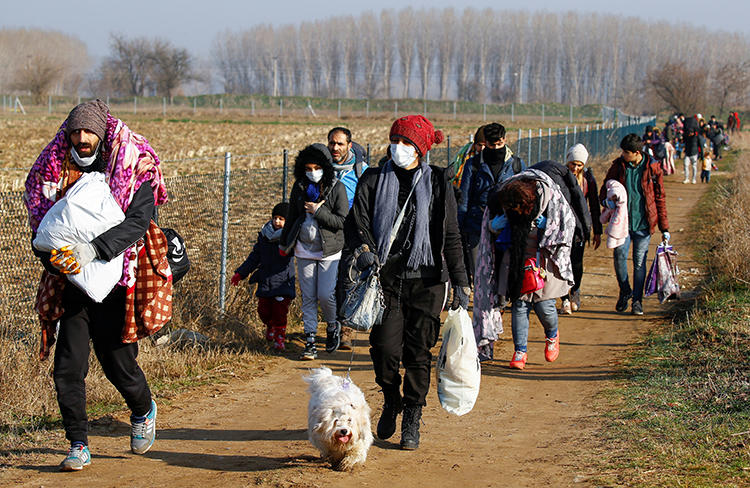Istanbul, March 2, 2020 — Turkish authorities should allow journalists to cover refugee movements and other important events of public interest without fear that they will be detained or imprisoned, the Committee to Protect Journalists said today.
On February 29, Turkish gendarme detained at least four journalists in the country’s western Edirne province, who were covering refugees moving through the country from Syria: reporters İdris Sayılgan and Naci Kaya from the pro-Kurdish Mezopotamya News Agency, and reporter Rawin Stêrk and camera operator Mehmet Şirin Akgün from the Iraqi-Kurdish outlet Rudaw, according to reports from Rudaw and the Mezopotamya News Agency. Officers accused the journalists of filming in a forbidden zone, according to those reports.
Today, as journalists in Edirne covered further refugee movements in the area, police detained freelance photographer Bradley Secker, a U.K. national, and released him at about 11 p.m., after he gave a statement to authorities, according to a series of tweets from the Media and Law Studies Association, a local press freedom group. Also in Edirne, freelance reporter Tuba Demir tweeted at 2:47 p.m. today that she was being taken into custody. At about 10 p.m., she resumed tweeting, and said that she believed at least 20 journalists had been detained in Edirne.
“As Turkish authorities crack down on journalists covering refugees in the country, they are revealing how little they care for the freedom of the press,” said Gulnoza Said, CPJ’s Europe and Central Asia program coordinator, in New York. “Authorities must immediately release journalists who remain in detention and drop any charges against them, and allow reporters to work freely.”
Authorities released Kaya today without charge, according to a report by the Mezopotamya News Agency. An Edirne court ordered Sayılgan to be sent to prison pending trial for an alleged parole violation, according to that report. In January 2019, Sayılgan had been found guilty of membership of a terrorist organization and disseminating propaganda, and was released under judicial control and with a foreign travel ban, according to news reports.
Stêrk and Akgün remain in custody, and authorities have requested to examine their phones, cameras, and computers, according to news reports. CPJ could not determine if charges have been filed against them
Also on February 29, police in Istanbul arrested Alptekin Dursunoğlu, chief editor for the news website Yakın Doğu Haber, regarding his social media posts about Turkey’s ongoing conflict in Syria, which authorities alleged were “inciting the public into animosity and hatred” and sent him to prison pending trial, according to news reports. He is being held in the Silivri Prison, according to those reports.
The same day, police arrested three unidentified employees of the Russian-government funded outlet Sputnik in Ankara, and arrested the outlet’s chief Turkey editor, Mahir Boztepe, in Istanbul, according to a report by the outlet. The arrests occurred after a group of protesters in Ankara attempted to break into the employees’ homes there; when the employees contacted the police to file a criminal complaint, police detained them and also ordered Boztepe’s detention in Istanbul, Sputnik reported.
The four Sputnik staffers were released the following day with no charges brought against them, according to that report. When police arrested Boztepe, officers also searched Sputnik’s Istanbul office and copied journalists’ hard drives, the outlet reported.
Turkey’s Ministry of Interior did not immediately respond to CPJ’s emailed request for comment.
